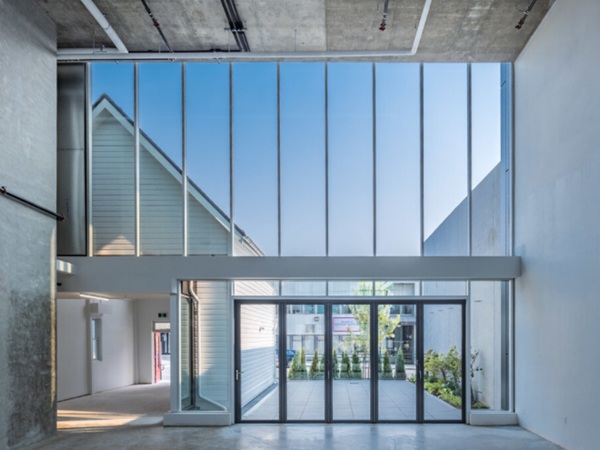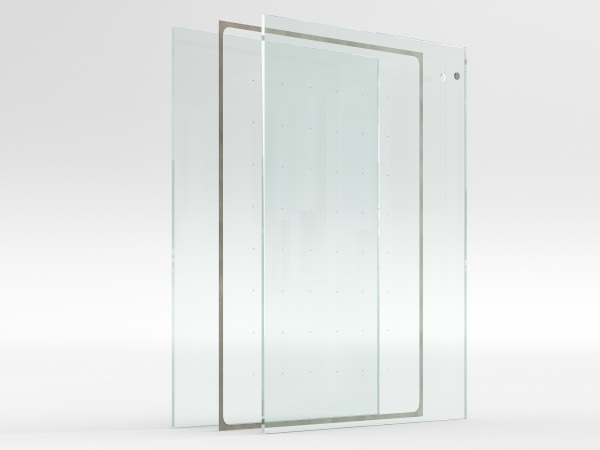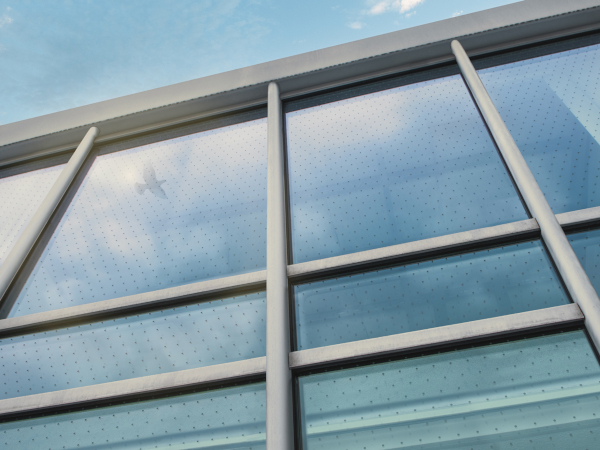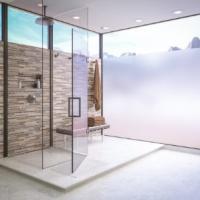Date: 8 April 2013
Leaps in performance enforced by Building Regulations Document L in both in 2006 and then again in 2010, have fundamentally changed the windows installed today. However, with vastly improved performance and energy efficiency there is sometimes a compromise. As our windows become more efficient less heat escapes through the glazing, the adverse effect of this is that the temperature of the outer pane doesn’t warm in the same way that it does in less efficient glazing. This means that the temperature of the outer pane can drop below the dew point causing the outer surface of the glass to condensate. Guardian’s ClimaGuard Dry is one of the first anti external condensation glasses offering a solution to this problem.The occurrence of external condensation is greatly influenced by the seasons and actually requires very specific conditions to occur. Most likely to occur in late autumn and again in early spring, external condensation normally occurs when a ‘warm front’ follows a cold dry spell, often on a cloud free night with little or no wind. However even these conditions will not guarantee external condensation to form on all windows! Micro climates created by hedges and other external objects like nearby buildings and tree’s, may only cause certain windows to condensate. This represents the most common complaint, as those windows affected tend to be perceived by the home owner as failing or inadequate. The truth of the matter is: external condensation isn’t a common problem compared to the number of windows installed each month and when it does occur it is actually first hand evidence that the windows installed are working efficiently, dramatically reducing heat loss through the glass.ClimaGuard Dry was originally developed in 2010 and has been available in other parts of Europe for some time now, particularly in countries where triple glazing represents over 50% of installations and in some of the Nordic countries where triple glazing now represents nearly 90% of the glazing installed. In these countries the benefits of highly energy efficient triple glazing have been recognised and the occurrence of external condensation is more commonly understood. With understanding, there is a general acceptance that exceptional efficiency may result in short spells of external condensation, and for many this isn’t considered a problem rather a showpiece that their glazing is keeping their energy bills at bay. However, for those who do prefer a clear window all year round, there is ClimaGuard Dry.
Guardian’s ClimaGuard Dry uses state of the art magnetron sputter coating technology to create a surface one coated glass which insulates the outer pane when fabricated into double and triple glazed IGU’s. The coating helps to keep the glass temperature above the dew point whilst also helping to prevent the condensation from forming in the first place.
For more information on ClimaGuard Dry please click here


















Add new comment